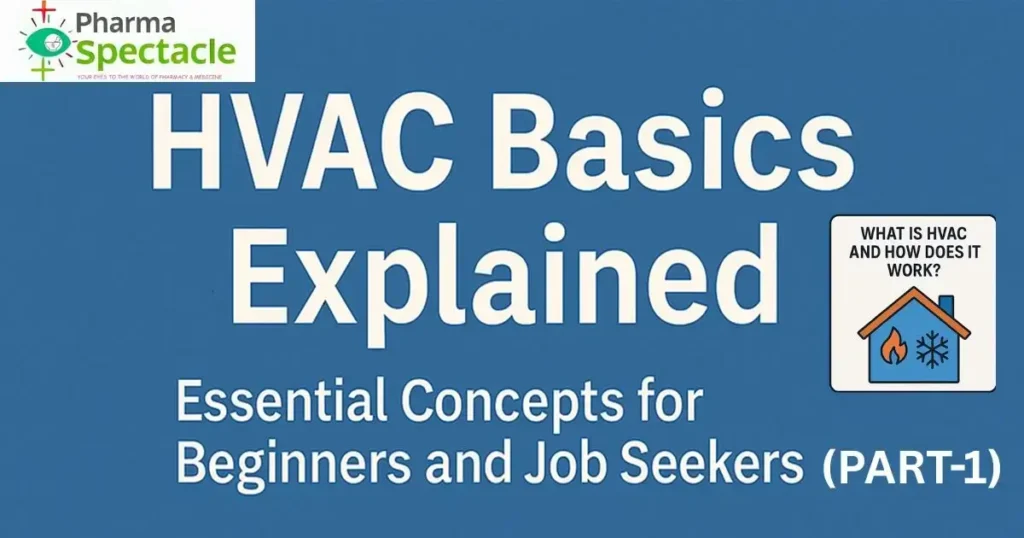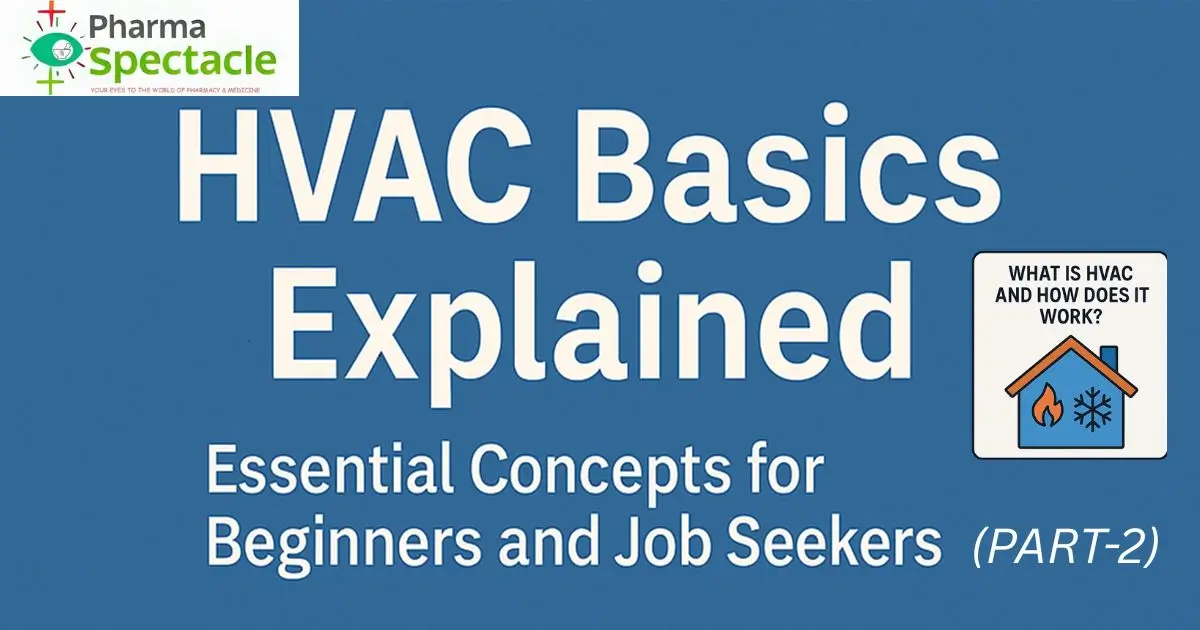
Whether you’re preparing for an HVAC interview or just trying to understand how heating and cooling systems work, getting the basics right is crucial. In this post, we break down the fundamental concepts of HVAC (Heating, Ventilation, and Air Conditioning) to help you build a solid foundation. From how HVAC systems operate to key terms like BTU, SEER, and thermostats, this beginner-friendly guide is your perfect starting point.
Click here to read more about pharma related topic!
1. What Is HVAC and How Does It Work?
HVAC stands for Heating, Ventilation, and Air Conditioning. It’s a collective term for the systems that control the temperature, humidity, and air quality inside buildings, be it homes, offices, or factories.
- Heating ensures a comfortable indoor environment during cold seasons.
- Ventilation provides fresh air by removing indoor pollutants and Odors.
- Air conditioning helps cool down spaces during warm weather.
These systems work together to maintain thermal comfort and indoor air quality, adapting to changes in weather and occupancy.
2. What Are the Main Types of HVAC Systems?
HVAC systems come in different configurations depending on building size, climate, and budget:
- Split Systems: Most common in homes. Separate indoor and outdoor units manage heating and cooling.
- Hybrid Systems: A variation of split systems that can switch between electricity and gas for energy efficiency.
- Duct-Free (Mini-Split) Systems: Ideal for renovations or buildings without ductwork.
- Packaged Systems: All-in-one units typically installed outdoors, used in small commercial spaces.
3. What Does a Compressor Do in an HVAC System?
The compressor is the heart of the refrigeration cycle. It compresses refrigerant gas to raise its pressure and temperature before sending it to the condenser. Without it, heat cannot be moved in or out of a space, making it a critical component in both heating and cooling modes.
4. What Is a Heat Pump?
A heat pump transfers heat instead of generating it. In winter, it extracts heat from the outside air (or ground) and transfers it indoors. In summer, it works in reverse to cool your space. Heat pumps are highly efficient and reduce energy consumption.
5. What Is a Thermostat and Why Does It Matter?
A thermostat controls the HVAC system. It senses room temperature and signals the system to turn on or off to maintain a set temperature. Smart thermostats can be programmed or controlled remotely to save energy and improve comfort.
6. What Is BTU in HVAC?
BTU stands for British Thermal Unit—a measure of thermal energy. It tells you how much heat an HVAC unit can add or remove in one hour. For example, a 12,000 BTU air conditioner can cool a standard-sized room efficiently.
7. What Is SEER Rating?
SEER means Seasonal Energy Efficiency Ratio. It measures the cooling efficiency of air conditioners and heat pumps over a typical season. Higher SEER = better energy performance. For example:
- SEER 13 = Minimum standard in many regions
- SEER 20+ = High-efficiency systems
8. HVAC vs. AC – What’s the Difference?
While AC (air conditioning) refers specifically to cooling, HVAC includes heating, ventilation, and cooling. So, all AC systems are part of HVAC, but not all HVAC systems are just about cooling.
9. What Does Ventilation Do in HVAC?
Ventilation removes stale air and brings in fresh air. It’s essential for:
- Removing carbon dioxide and indoor pollutants
- Controlling humidity
- Preventing Mold and Odors
Ventilation can be natural (via windows) or mechanical (via fans and ductwork).
10. Why Is Refrigerant Important?
Refrigerant is the substance that absorbs and releases heat as it circulates through the HVAC system. It flows between evaporator and condenser coils during the cooling process. Modern refrigerants like R-410A are eco-friendlier and more efficient compared to older options like R-22.
Final Thoughts
Understanding these HVAC fundamentals is crucial whether you’re a technician in training, a job aspirant preparing for interviews, or just someone curious about how these systems work. In upcoming blogs, we’ll cover components like air handlers, ductwork, and condensers, and also dive into maintenance tips, safety, and interview Q&A.
Follow us on WhatsApp & Telegram for HVAC job updates, interview tips, and study material:






